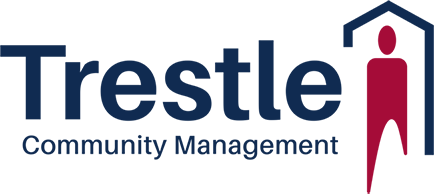How Condo and HOA Communities Prepare and Ratify Budgets
For those communities whose fiscal year begins January 1st, budget season is underway and budget ratification meetings are likely scheduled soon, with announcements arriving in the coming weeks. In Washington State, Homeowner (HOA) and Condominium (COA) Associations are governed by specific laws and regulations that dictate the processes and requirements for budgeting and ratification. These processes are crucial for ensuring that Associations operate in a transparent, organized, and financially responsible manner.
Association Budgets
Association budgets are essential for planning the annual expenses and revenues related to the operation and maintenance of the community. They typically include the following components:

- Operating Expenses: These are the regular, ongoing expenses associated with the management, maintenance, and operation of the Community’s common areas, amenities, and services. Examples include landscaping, utilities, insurance, and management fees.
- Reserve Fund Contributions: Reserve funds are dedicated accounts used to save for significant repairs, replacements, and improvements to the Community’s common areas and facilities. Associations are required to maintain a reserve fund, with annual contributions based on a reserve study that estimates the future costs of these expenses.
- Assessments: Assessments are the fees collected from Homeowners to cover the Association’s expenses. The budget determines the total amount of assessments required for the year and the assessment rate for each Homeowner, usually based on their property type and ownership share.
- Miscellaneous Income: This includes any additional revenue generated by the Association, such as fees from renting community facilities, fines, or interest on reserve fund investments.
Budget Ratification in Washington State
Washington State law requires Associations to follow specific procedures for budget ratification, as outlined in the Washington Uniform Common Interest Ownership Act (WUCIOA).
- Budget Preparation: The Association’s Board of Directors is responsible for preparing the proposed annual budget. This process typically involves reviewing the previous year’s financial performance, estimating future expenses, and determining assessment rates.
- Notice to Homeowners: The Board must provide each Homeowner with a copy of the proposed budget and a summary of the budget at least 14 days before the Budget Ratification Meeting.
- Budget Ratification Meeting: The Association must hold a meeting of the Homeowners to ratify the proposed budget. This meeting can be part of the Association’s annual meeting or a separate, specially scheduled meeting.
- Budget Approval: In Washington State, the proposed budget is automatically ratified unless a majority of the Homeowners present (in person or by proxy) at the Ratification Meeting, or a majority of the total voting power of the Association (whichever is less), vote to reject the budget. If the budget is rejected, the Association will continue to operate under the previous year’s budget until a new budget is ratified.
The Association budget and ratification process in Washington State is designed to promote transparency, fiscal responsibility, and Homeowner involvement in the financial management of Associations. By adhering to the state’s legal requirements and engaging Homeowners in the budgeting process, Associations can foster trust, ensure financial stability, and maintain the long-term value and appeal of their communities.
Reviewing the Budget and Financials
Interested Homeowners can learn more about their Community Association and review its documents by visiting Trestle’s My-Community Web Portal, contacting the Community’s Association Manager and attending Board and community meetings.
Connecting with Trestle
In addition to Trestle’s website, the firm regularly connects on LinkedIn, Facebook, and Twitter.



